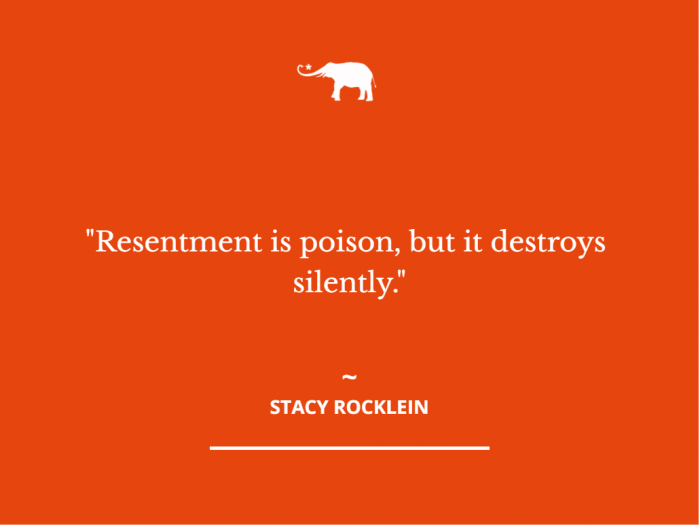~
I can be the queen of resentment. In all flavors.
>> Resentment at people for asking more than I have to give (even though, how would they know, because I never tell them?).
>> Resentment at people for asking me to do things I think they can do on their own.
>> Resentment at myself for saying yes because I didn’t have the guts to say no.
>> Resentment at people for things they haven’t even asked for yet.
>> Resentment for things I did happily and willingly but are now expected of me.
Resentment is just one big story though. It’s what I tell myself about what’s going on. I layer judgements on others, like they shouldn’t ask or expect me to agree. They should know it’s too much or unfair. They should take care of it their own darn selves.
I put judgements all over myself, like I shouldn’t say yes if I don’t want to, but also, I shouldn’t say no because it’s self-absorbed. I tell myself that good moms (friends, partners, sisters, daughters, coaches, leaders, fill-in-the-blank) help others out. It’s the right thing to do.
Resentment is poison, but it destroys silently.
A lot of the time, the other person doesn’t even know there’s arsenic running through the veins of the relationship. It starts with a should thought (they shouldn’t expect that of me), which sets off the emotion (resentment).
If we have enough of it, we’ll start to spin the martyr track. Poor me. It’s not fair. Why does it always have to be me?
We all know a victim needs a villain, so we cast the people we love as evil characters (selfish, incapable, unwilling, weak, mean, takers), and look what we did. We just took our loved ones, the people we adore, and turned them into the bad guys. Obviously, that’s not good. The great thing about resentment, though, is we can solve our problem all by ourselves. It’s an inside job.
How to drop resentment:
1. Drop the story. You’ll unload heaps of resentment right there.
2. Give back what you don’t want. You can change your mind and say no, even if you already said yes.
3. Stop showing up for the expectations of others. There will probably be some pushback, but only for a while. Eventually, people will relearn what you’re willing to do.
4. Only say yes when you can do it willingly and joyfully. That means you’re gonna have to get comfortable disappointing people, and as hard as it can be, that’s an excellent relationship skill to develop.
There’s one more thing I’ll recommend. It’s optional and it’s especially for those who are terrified by these steps. It’s for the ones who will always choose resentment over potentially disappointing someone. For those who know they say way too much yes. For those who know they’re not giving freely.
First of all, let’s not be too hard on ourselves about it. Sure, it’s an unhealthy pattern, but it’s not really our fault. It was probably birthed when people didn’t show up for us the way we needed. That wasn’t fair or okay, but now, we get to choose health. If these patterns run deep, we may need some extra help from a coach or therapist. No shame in that.
When these patterns are broken, the relationship landscape will change. Not only will the people already in our life begin to show up for us, but the unhealthy relationships will drop away also. Healthy people will be attracted to our authentic generosity and healthy boundaries.
One of my favorite things is when I meet a woman who refuses to self-sacrifice.
>> She says yes when she wants to say yes.
>> She gives when she’s inspired to give.
>> She says no when she just plain doesn’t want to do it.
I want to be like that. Those women inspire the heck out of me.
I use resentment as a part of my warning system. It cautions me that I need to give it attention and quickly. I don’t want to damage my relationships for a fictional should story, I’m telling myself.
I want to love and give freely with my whole self in the healthiest and most supportive way I can for both myself and the people I love.
~











Read 1 comment and reply